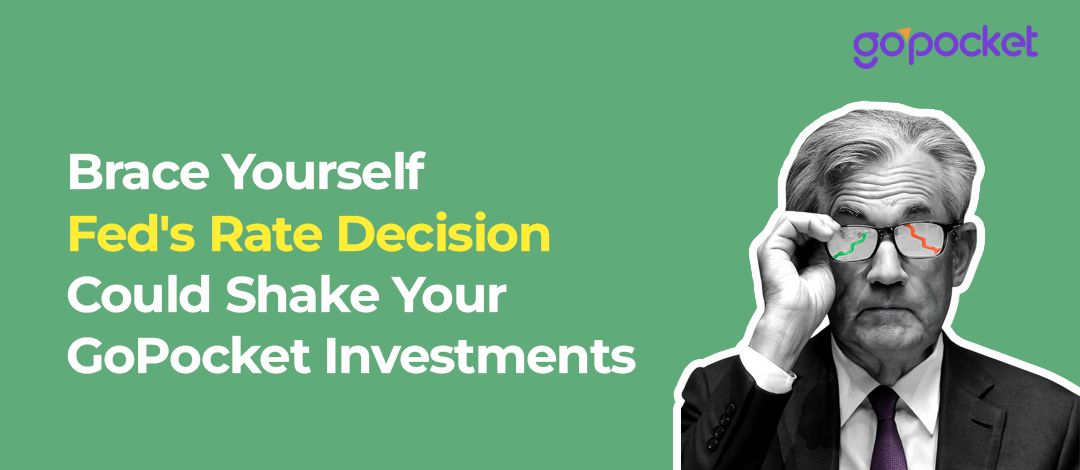
Brace Yourself: Why the Fed's Next Move Could Shake Your GoPocket!
The financial world is holding its breath, eyes fixed on one entity: the U.S. Federal Reserve. Their upcoming interest rate decision isn't just a dry economic announcement; it's a potential earthquake for everything from your savings account to your investment portfolio. If you're wondering why the market is buzzing, and why you should care, you're in the right place.
The Fed: The Maestro of the Economy
Think of the Federal Reserve as the central bank of the United States, wielding immense power over the nation's economy. One of their most potent tools is the federal funds rate, which is the target rate for overnight lending between banks. While you won't directly borrow at this rate, it acts as a foundational benchmark, influencing virtually all other interest rates in the economy – from mortgage rates and car loans to credit card APRs and, crucially, the returns on your investments.
The Fed's primary mandate is two-fold: maintain maximum employment and keep inflation in check. In recent times, inflation has been the bigger beast they've been trying to tame. For much of the past year, we've seen a series of aggressive rate hikes, a deliberate attempt to cool down an overheating economy by making borrowing more expensive and encouraging saving.
The Current Economic Tightrope Walk
Why the intense scrutiny right now? The economy is at a critical juncture. We've seen some signs that inflation might be easing, but it's far from a decisive victory. At the same time, there are growing concerns that the Fed's aggressive tightening could tip the economy into a recession. It's a delicate balancing act: raise rates too much, and you risk stifling growth and employment; ease up too soon, and inflation could resurface with a vengeance.
What Happens When Rates Change?
Let's break down the potential ripple effects:
If the Fed Raises Rates,
● Borrowing Becomes More Expensive: Mortgages, car loans, and credit card debt will likely see higher interest rates. This can slow consumer spending and business investment.
● Savings May Offer Better Returns: While not always immediate or substantial, higher rates generally mean banks can offer slightly better interest on savings accounts and fixed deposits.
● Stock Market Volatility: Higher rates often make bonds more attractive relative to stocks, as bonds offer a "safer" return. This can lead to investors re-evaluating their stock holdings, potentially causing market downturns, especially for growth stocks that rely on future earnings. Companies also face higher borrowing costs, impacting their profitability.
● Stronger Dollar: Higher U.S. interest rates can attract foreign investment, thereby increasing demand for the dollar and strengthening it against other currencies.
Also Read Our Blog : 30 Years, 120 Shares, 1 Crore: The Infosys Story You’ll Love
If the Fed Holds Rates Steady:
● A Sigh of Relief (Potentially): This signals that the Fed believes its previous actions are sufficient to control inflation, and they are assessing the impact before making further moves. It could inject some stability and confidence into the market.
● Continued Vigilance: Holding steady doesn't mean the inflation fight is over; it means a pause. Markets will still be on edge for future signals.
If the Fed Cuts Rates:
● Cheaper Borrowing: This is typically done to stimulate a faltering economy, making it cheaper for consumers and businesses to borrow and spend.
● Potential for Stock Market Rally: Lower rates can make stocks more attractive compared to bonds, and lower borrowing costs can boost corporate profits.
● Weaker Dollar: Lower U.S. interest rates can make dollar-denominated assets less appealing, potentially leading to a weaker dollar.
Your Portfolio and the Fed: A Direct Connection
Understanding the Fed's actions is crucial for anyone with investments. For instance, if you're invested in sectors sensitive to borrowing costs, such as real estate or technology, rate changes can have a pronounced effect. Conversely, sectors that benefit from higher rates, like banking, might react differently.
This is precisely why having a clear view of the market and the tools to react swiftly is invaluable. Whether the market is heading up, down, or sideways, informed decisions are key to navigating volatility.

Don't Just Watch, Participate!
The world of finance might seem complex, but understanding these fundamental forces is the first step towards taking control of your financial future. As the Fed continues its critical balancing act, staying informed and having the right platform to manage your investments becomes paramount.
Are you ready to truly understand how these macroeconomic decisions impact your financial journey? With a GoPocket Demat Account, you'll have access to the tools and insights you need to make informed investment decisions, whether the Fed is raising, holding, or cutting rates. Don't let these crucial market shifts catch you off guard.
"Investments in securities market are subject to market risks. Read all the related documents carefully before investing."
What's Trending
December 10, 2025
Recent Blog
Open Your Demat Account in Under 5 Minutes
Have any queries? Get support
Blog
Recent Blogs

Open your GoPocket Account within 5 minutes.
Have any queries?







.jpeg)


.jpeg)




